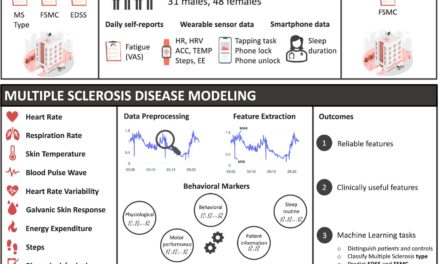
Eva Ritvo, MD
Medscape
The Barbie movie has sparked a wide range of emotions, from praise to criticism. Regardless of one’s stance on the film, it’s worth taking a moment to ponder the fact that the highest-grossing film of 2023 centers around our childhood doll navigating her anxiety disorder.
Oscar Wilde’s words from 1889, “Life imitates art more than art imitates life,” resonate strongly in this context. When my adult daughter, a fervent Barbie fan from her childhood, invited me to see the movie, we donned pink attire and went – not once, but twice. Little did I anticipate the whirlwind of thoughts and feelings it would evoke. One sentiment I feel compelled to share is the gratitude I have for being a mental health care provider at this juncture in time.
Gone are the days of hushed conversations about mental health at the water cooler; even Barbie grapples with it now. Amidst the movie’s controversy, the portrayal of anxiety doesn’t seem to surprise anyone. Raised by two child psychiatrists and practicing as an adult psychiatrist since 1991, I navigated through the pandemic’s onset, which marked the most challenging period of my career. Nearly every patient, as well as myself, was wrestling with their own struggles. Three long years later, we’re gradually emerging from this collective trauma. Ironically, as the opportunity arises to return to in-person practice, I’ve opted to maintain the majority of my sessions online from the comfort of my home. It appears that both patients and providers favor this mode of treatment, with a staggering 90 percent of practitioners adopting a hybrid approach.
As mental health professionals, we understand that anywhere from 3% to 49% of individuals experiencing trauma may develop posttraumatic stress disorder (PTSD), and we’re equipped to help them.
However, what transpires when an entire global populace undergoes trauma simultaneously? Historians and social scientists employ various terms to describe such occurrences: Singularity, Black Swan Event, Tipping Point. These events are exceptionally rare, and they irrevocably alter everything in their wake. We stand at that precipice now. This is our Black Swan Event, our Singularity. Within a span of three years, we’ve borne witness to:
- A global traumatic event (COVID-19).
- A sudden and seemingly enduring shift from office to remote video meetings, predominantly from home.
- Disruption of traditional stock market fundamentals as the game ground to a halt in January 2021.
- Swift and widespread integration of Artificial Intelligence.
- The first generation raised entirely on the Internet and social media (Gen Z) now entering the workforce.
- Ongoing conflict in Ukraine.
This is already an overwhelming list, and I could continue, but let’s return to Barbie’s anxiety disorder.
Awareness and acceptance of mental health issues have never been higher, and access to treatment has never been more extensive. The options for online therapy have multiplied, ranging from Transcranial Magnetic Stimulation (TMS) to ketamine centers and psychedelics, alongside more established methods like dialectical behavior therapy (DBT), cognitive behavioral therapy (CBT), selective serotonin reuptake inhibitors (SSRIs), and many more.
What’s especially distinctive about this moment is the direct accessibility to care. Self-help literature abounds, with many titles gracing the New York Times bestseller list. YouTube teems with valuable content on overcoming various mental health challenges, though discernment is advised in choosing reliable sources. Apps like HeadSpace and Calm are being downloaded by millions worldwide. In 2020 alone, investors allocated an unprecedented $1.5 billion to mental health startups.
For most of us in the field, our phones have been ringing incessantly since 2020. Applications to psychology, psychiatric residency, social work, and counseling degree programs are on the rise, with workforce shortages anticipated to persist for decades. Businesses have warmly embraced psychological expertise, particularly in the realm of DEI (diversity, equity, and inclusion). Mental health experts are among the most sought-after professionals for media appearances. Even elite athletes are openly discussing the inclusion of mental health experts on their teams.
In this unique juncture, when everything seems poised for transformation, it’s time for mental health professionals to collectively articulate their perspectives and help steer society.

According to Neil Howe, in his expansive work “The Fourth Turning is Here,” we have another 10 years in this “Millennial Crisis” phase. He terms this our “winter,” and the outcome of our current challenges remains to be seen. I believe we can make a difference.
If the Barbie movie indeed serves as a barometer for our times, I see positive trends on the horizon as we navigate societal and structural shifts, working together to forge a more inclusive and equitable society. We must devise innovative solutions to tackle truly monumental challenges that jeopardize our well-being, and perhaps even our existence.
There has never been a more opportune moment to be (or become!) a mental health professional. I am immensely thankful for the privilege of continuing my practice and sharing my reflections with you from my home office. I encourage you to take a break and see this movie, which not only entertains but also sparks profound contemplation and emotion.
Dr. Ritvo boasts nearly three decades of experience in psychiatry and presently conducts telemedicine sessions. She authored “Bekindr – The Transformative Power of Kindness” (Hellertown, Pa.: Momosa Publishing, 2018) and has no conflicts of interest.











